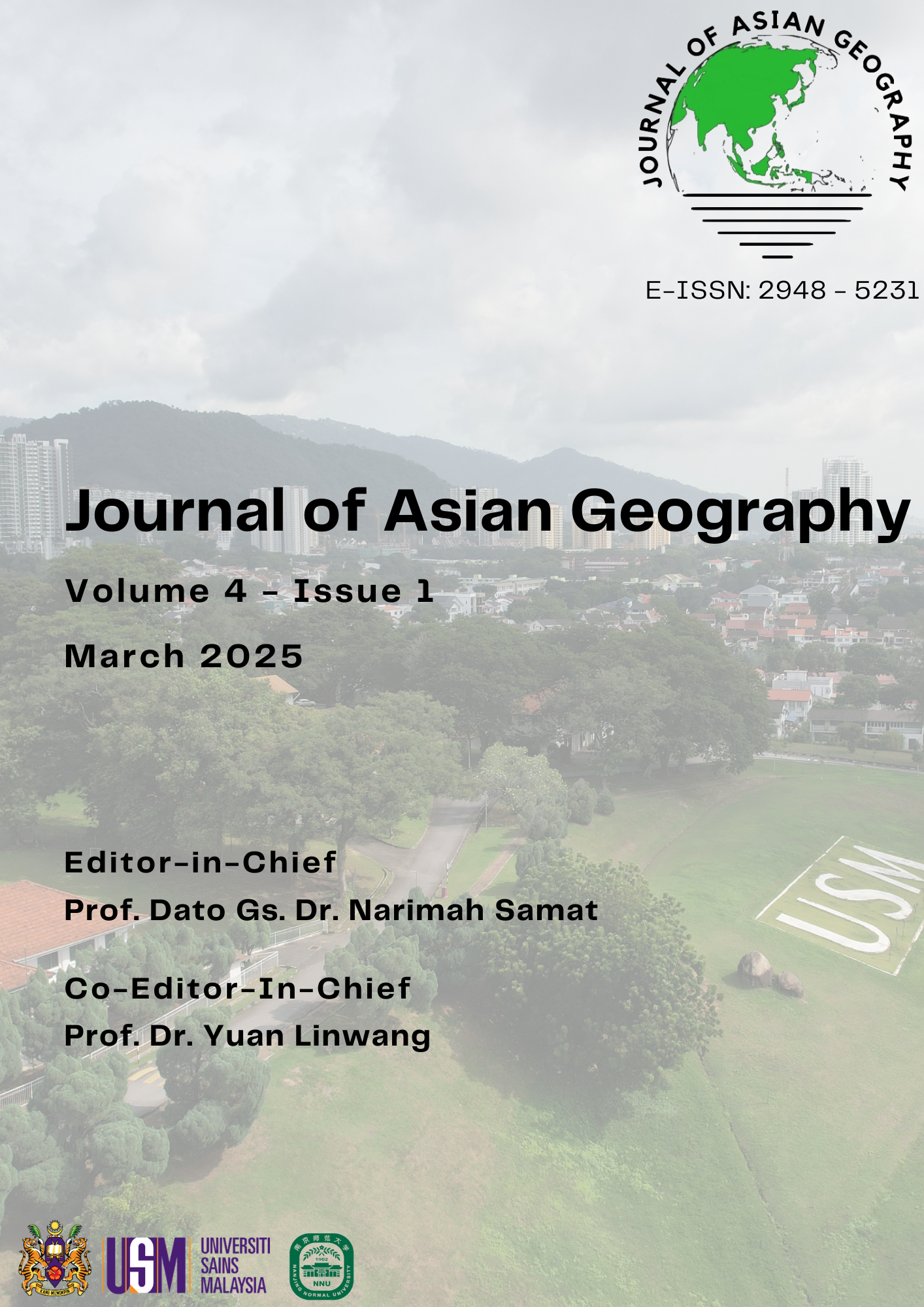Enhancing the Thinking Skills of Geography Education Students Through a Case-Based Learning Approach
DOI:
https://doi.org/10.36777/jag2025.4.1.4Keywords:
Geography, education, cased-based Learning, thinking skillsAbstract
This study aims to analyze the level, relationship, and effect of the case-based learning approach on the thinking skills of Geography students at Universiti Pendidikan Sultan Idris (UPSI). The study employed a quantitative methodology, using a survey design and a Google Form questionnaire. The sample consisted of 164 male and female students in their fourth, fifth, sixth, and seventh semesters, selected according to Krejcie and Morgan's table. Descriptive analysis (mean, percentage frequency) and inferential analysis (Pearson correlation) were used to answer the research questions. The findings show a high level of knowledge (M = 4.67), indicating a strong mean value. Pearson's correlation analysis reveals a moderate relationship between the level of knowledge and the learning type, comparing case-based learning and conventional learning, with a Pearson correlation value of r = 0.599 and p = 0.000. Additionally, the case-based learning approach had a significant effect on the thinking skills of both male and female Geography students, yielding a high mean value (M = 4.64). In conclusion, this study shows that male and female students possess a strong level of knowledge about the case-based learning approach applied in Geography education at the university level. The implications of this study may benefit those looking to investigate the influence of learning approaches on thinking skills, students' knowledge, attitudes, and motivation.

Downloads
Published
Issue
Section
License
Copyright (c) 2025 Journal of Asian Geography

This work is licensed under a Creative Commons Attribution 4.0 International License.

